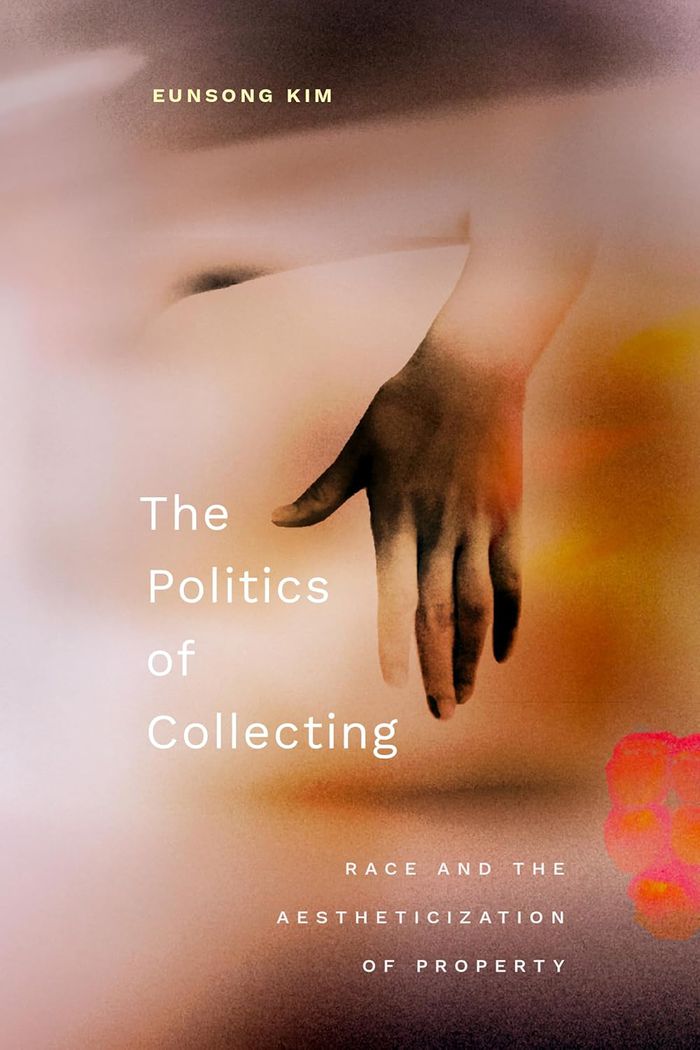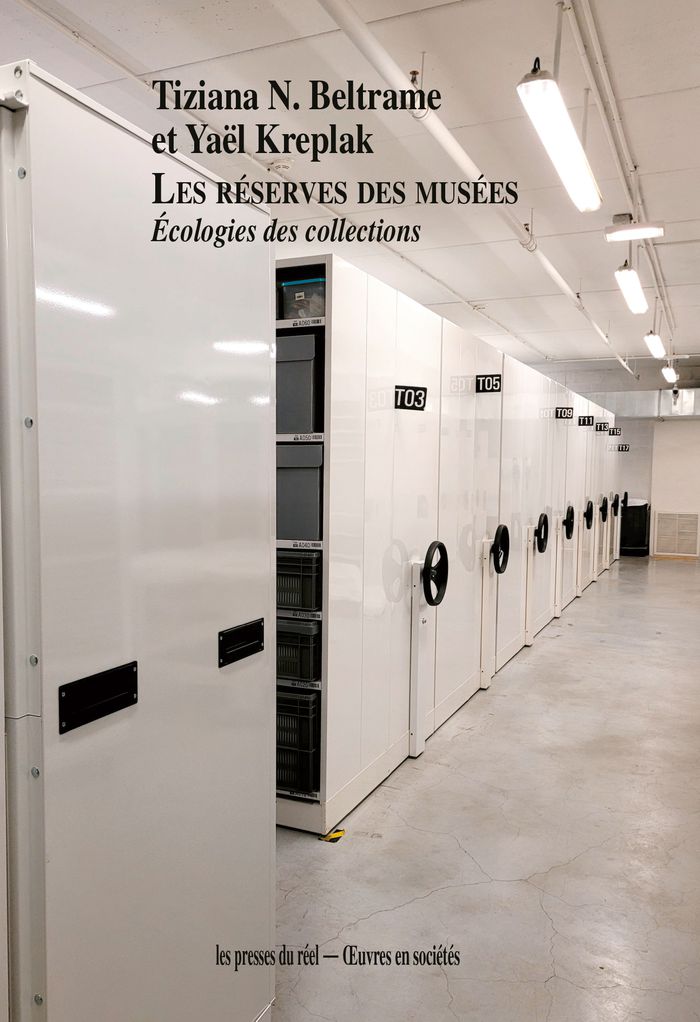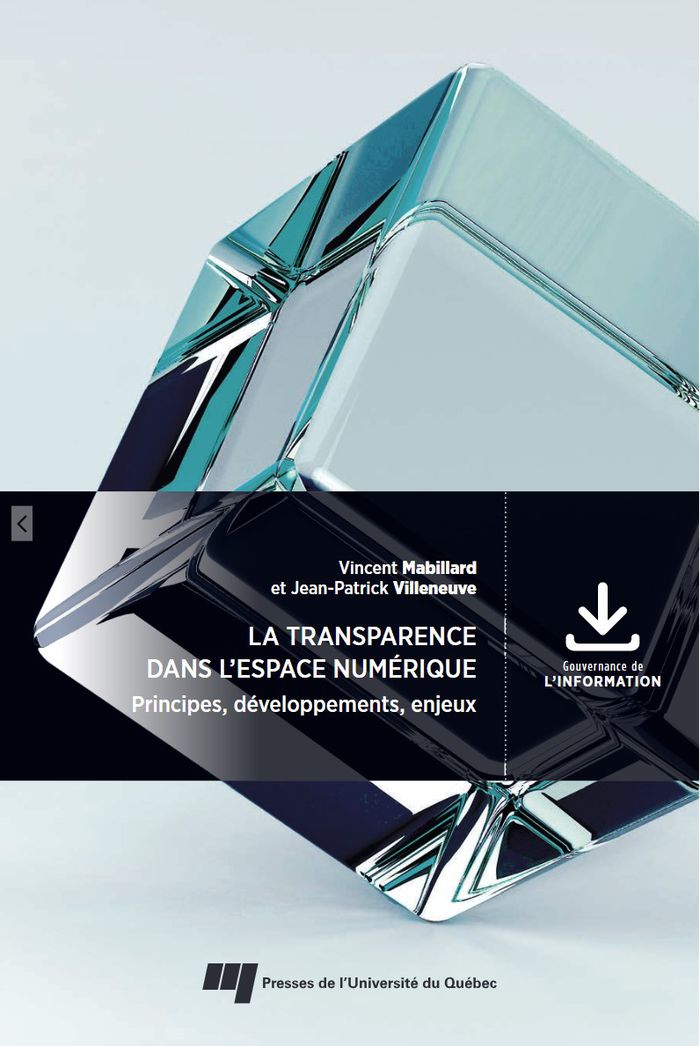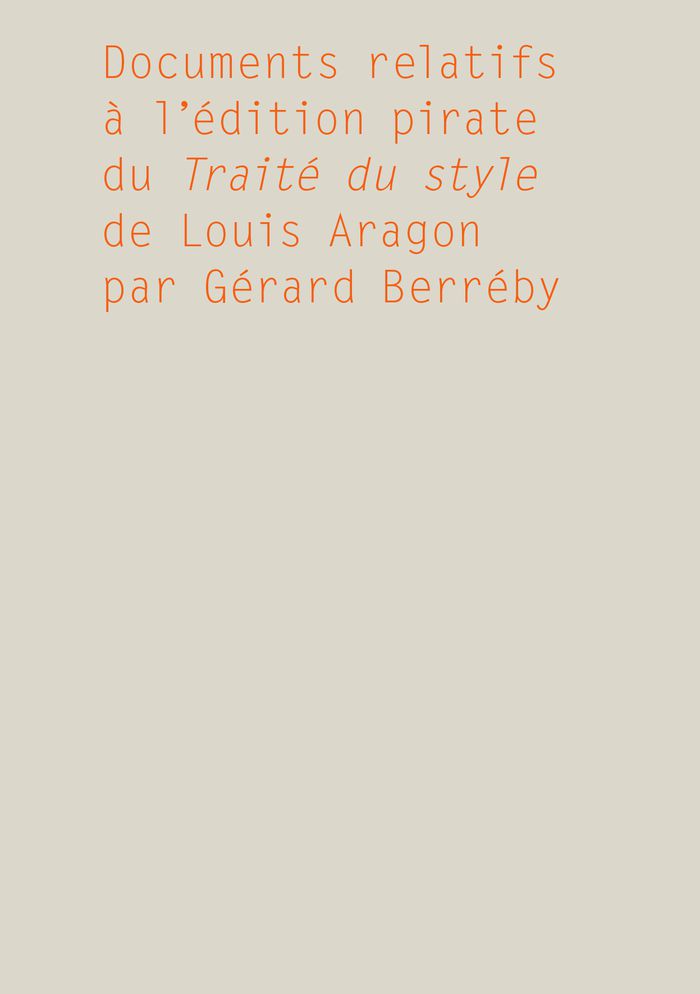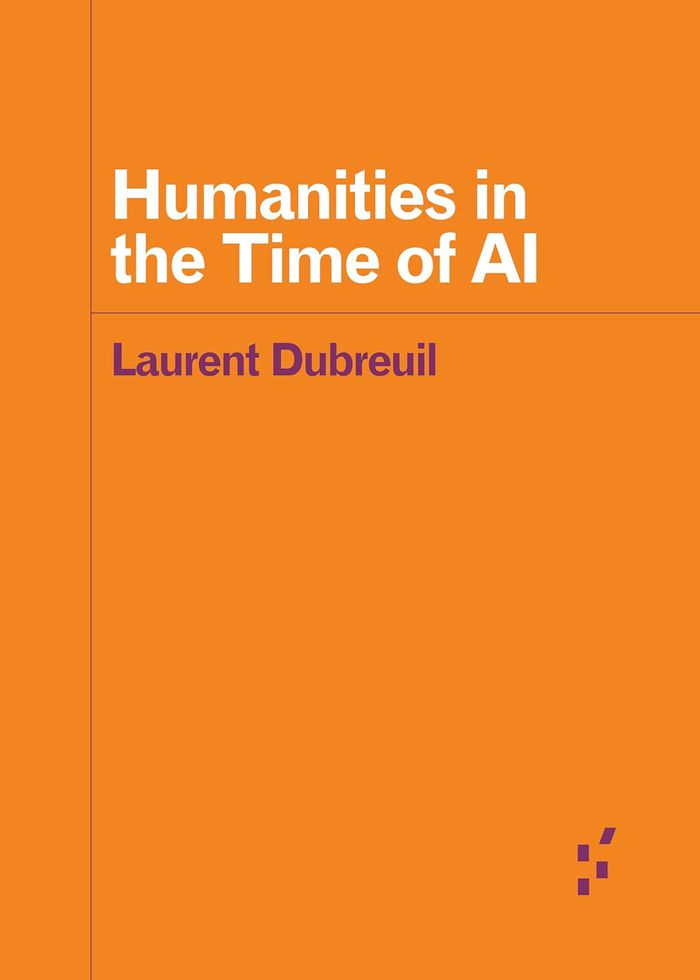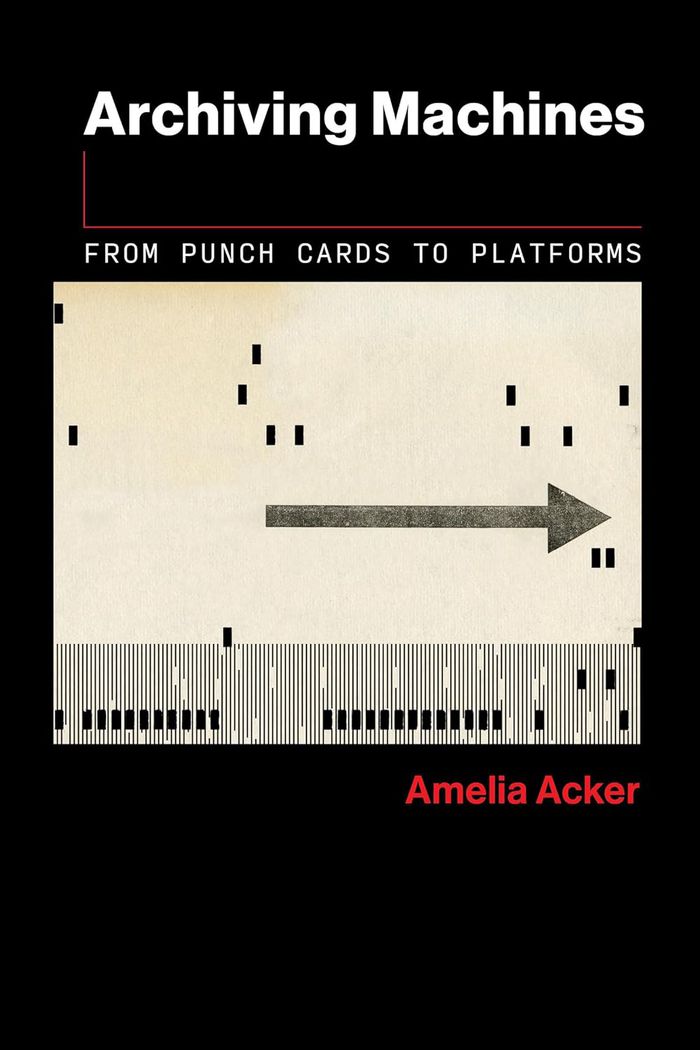$37.95
(disponible en magasin)
Résumé:
In "The politics of collecting," Eunsong Kim traces how racial capitalism and colonialism situated the rise of US museum collections and conceptual art forms. Investigating historical legal and property claims, she argues that regimes of expropriation--rather than merit or good taste--are responsible for popular ideas of formal innovation and artistic genius. In doing so,(...)
The politics of collecting: Race and the aestheticization of property
Actions:
Prix:
$37.95
(disponible en magasin)
Résumé:
In "The politics of collecting," Eunsong Kim traces how racial capitalism and colonialism situated the rise of US museum collections and conceptual art forms. Investigating historical legal and property claims, she argues that regimes of expropriation--rather than merit or good taste--are responsible for popular ideas of formal innovation and artistic genius. In doing so, she details how Marcel Duchamp's canonization has more to do with his patron's donations to museums than it does the quality of Duchamp's work, and she uncovers the racialized and financialized logic behind the Archive of New Poetry's collecting practices. Ranging from the conception of philanthropy devised by the robber barons of the late nineteenth century to ongoing digitization projects, Kim provides a new history of contemporary art that accounts for the complicated entanglement of race, capital, and labor behind storied art institutions and artists. Drawing on history, theory, and economics, Kim challenges received notions of artistic success and talent and calls for a new vision of art beyond the cultural institution.
$52.00
(disponible sur commande)
Résumé:
Dans une démarche interdisciplinaire inspirée des études des sciences et techniques, articulant approches muséologiques et sociologiques, cette étude inédite sur les réserves des musées apporte un éclairage nouveau sur le monde de la conservation de l'art et du patrimoine. Lieu essentiel du musée où sont conservées les œuvres quand elles ne sont pas exposées, les(...)
septembre 2024
Les réserves des musées : Écologies des collections
Actions:
Prix:
$52.00
(disponible sur commande)
Résumé:
Dans une démarche interdisciplinaire inspirée des études des sciences et techniques, articulant approches muséologiques et sociologiques, cette étude inédite sur les réserves des musées apporte un éclairage nouveau sur le monde de la conservation de l'art et du patrimoine. Lieu essentiel du musée où sont conservées les œuvres quand elles ne sont pas exposées, les réserves sont restées longtemps dans l'ombre des salles d'expositions. Or, dans la majorité des institutions, seule une infime portion des collections est présentée au public : il y a donc un réel enjeu à penser la relation entre leurs parts visible et invisible, les problématiques liées à leur stockage et leur mouvement, et le travail qu'elles impliquent.
$33.00
(disponible en magasin)
Résumé:
How does media architecture distribute suspicion and trust? What is a collage of media architecture? How is media architecture vectored? How can media architecture address privilege? These questions and conceptual provocations aim to challenge the binary of techno-optimism and technological agoraphobia, offering a platform for developing new, critically and contextually(...)
novembre 2023
Provocations on media architecture
Actions:
Prix:
$33.00
(disponible en magasin)
Résumé:
How does media architecture distribute suspicion and trust? What is a collage of media architecture? How is media architecture vectored? How can media architecture address privilege? These questions and conceptual provocations aim to challenge the binary of techno-optimism and technological agoraphobia, offering a platform for developing new, critically and contextually rooted theories that media architecture might grab hold of. Intentionally open-ended, ''Provocations on Media Architecture'' brings together 21 thought leaders across architecture, visual arts, design, curation, academia and public policy to address these ideas and themes. Authors respond with images and brief texts incorporating the perspective of their own creative and scholarly practice. Entries range from descriptions of relevant artworks and design projects to reflections spawned from first-person encounters with media architecture in situ, scholarly analyses and AI-assisted theory.
$54.95
(disponible sur commande)
Résumé:
Avec la transformation numérique des processus documentaires, les professionnels de l'information et des bibliothèques sont confrontés de manière croissante à la gestion des données numériques, qu'elles soient structurées ou non. L'auteure évoque les diverses facettes du monde de la donnée et montre ses enjeux et ses opportunités pour les pratiques professionnelles en bibliothèque.
Les bibliothèques face au monde des données
Actions:
Prix:
$54.95
(disponible sur commande)
Résumé:
Avec la transformation numérique des processus documentaires, les professionnels de l'information et des bibliothèques sont confrontés de manière croissante à la gestion des données numériques, qu'elles soient structurées ou non. L'auteure évoque les diverses facettes du monde de la donnée et montre ses enjeux et ses opportunités pour les pratiques professionnelles en bibliothèque.
$30.00
(disponible sur commande)
Résumé:
Le présent ouvrage fournit des clés de compréhension en présentant les types de transparence et les enjeux propres à l’environnement numérique. Il ouvre la discussion sur le niveau idéal de transparence à atteindre, l’efficacité des mesures prises en la matière et la nécessité d’étendre le débat aux différentes approches relatives à l’ouverture administrative. Ce livre(...)
novembre 2023
La transparence dans l'espace numérique
Actions:
Prix:
$30.00
(disponible sur commande)
Résumé:
Le présent ouvrage fournit des clés de compréhension en présentant les types de transparence et les enjeux propres à l’environnement numérique. Il ouvre la discussion sur le niveau idéal de transparence à atteindre, l’efficacité des mesures prises en la matière et la nécessité d’étendre le débat aux différentes approches relatives à l’ouverture administrative. Ce livre s’adresse aux étudiants et étudiantes ainsi qu’aux chercheuses et chercheurs intéressés par cette thématique, de même qu’aux gestionnaires publics confrontés à la question de la transparence administrative dans leurs activités quotidiennes.
$30.00
(disponible en magasin)
Résumé:
Gérard Berréby s'entretient avec Aurélie Noury sur ce qui constitue sa première expérience éditoriale, au tout début des années 1980. En décidant de réaliser sur sa seule initiative une édition pirate du livre d'Aragon – alors opposé à tout retirage –, Gérard Berréby soulève plusieurs questions liées à l'appropriation et à l'autoédition : la copie et le faux, la(...)
Documents relatifs à l'édition pirate du Traité du style de Louis Aragon par Gérard Berréby
Actions:
Prix:
$30.00
(disponible en magasin)
Résumé:
Gérard Berréby s'entretient avec Aurélie Noury sur ce qui constitue sa première expérience éditoriale, au tout début des années 1980. En décidant de réaliser sur sa seule initiative une édition pirate du livre d'Aragon – alors opposé à tout retirage –, Gérard Berréby soulève plusieurs questions liées à l'appropriation et à l'autoédition : la copie et le faux, la circulation des textes, le détournement, le droit d'auteur, l'édition comme geste politique, la prescription, etc. L'épisode, inédit dans l'histoire de l'édition généraliste, aura provoqué de nombreuses réactions dans le monde littéraire, jusqu'aux poursuites judiciaires engagées par Gallimard. À partir des témoignages et documents d'époque, analysés par Berréby et mis en perspective par Nathalie Leleu plus de 40 ans après, l'ouvrage retrace les circonstances d'un geste fondateur pour le futur directeur des éditions Allia.
$66.00
(disponible en magasin)
Résumé:
Publishing is experiencing one of the most transformative phases in its history. In "Tactical publishing", a sequel to "Post-digital print", Alessandro Ludovico explores the forces driving this historical phase, highlighting the tremendous opportunities it presents. Our task, he believes, is to develop an alternative publishing system that transcends the dichotomy between(...)
Tactical publishing: Using Senses, Software, and Archives in the Twenty-First century
Actions:
Prix:
$66.00
(disponible en magasin)
Résumé:
Publishing is experiencing one of the most transformative phases in its history. In "Tactical publishing", a sequel to "Post-digital print", Alessandro Ludovico explores the forces driving this historical phase, highlighting the tremendous opportunities it presents. Our task, he believes, is to develop an alternative publishing system that transcends the dichotomy between paper and digital media. He focuses first on the two activities on which publishing is premised—reading and writing (with an emphasis onwriting machines and post-truth in the latter)—and then deconstructs the concept, proposing alternative strategies inspired by recent practices and unconventional uses of technology.
Humanities in the time of AI
$13.99
(disponible en magasin)
Résumé:
If humanistic research consists of the generation of consensus positions, simple expression, summarized texts, or passable translations, then we have arrived at the place where AI is able to accomplish these different missions to a convincing degree. However, Laurent Dubreuil argues, such tasks do not, in any way, constitute the humanities. On the contrary, he posits, a(...)
Humanities in the time of AI
Actions:
Prix:
$13.99
(disponible en magasin)
Résumé:
If humanistic research consists of the generation of consensus positions, simple expression, summarized texts, or passable translations, then we have arrived at the place where AI is able to accomplish these different missions to a convincing degree. However, Laurent Dubreuil argues, such tasks do not, in any way, constitute the humanities. On the contrary, he posits, a maximalist take on scholarship would not focus on generation but on creation, as a subject and as an object. Dubreuil seizes the opportunity of what AI reveals about the meaning of humanistic inquiry to offer a path for the renewal of the humanities on transhistorical, transcultural, and transdisciplinary grounds.
$54.00
(disponible en magasin)
Résumé:
"Archiving machines" advances our understanding of memory, information, and data by charting the struggle between the computing technologies that archive data and the cultures of information that have led to platforms that assert control over its use. Amelia Acker examines the origins of data archives and the computing processes of storage, exchange, and transmission.(...)
Archiving machines: From punch cards to platforms
Actions:
Prix:
$54.00
(disponible en magasin)
Résumé:
"Archiving machines" advances our understanding of memory, information, and data by charting the struggle between the computing technologies that archive data and the cultures of information that have led to platforms that assert control over its use. Amelia Acker examines the origins of data archives and the computing processes of storage, exchange, and transmission. Each chapter introduces data archiving processes that relate to the evolution of data sovereignty we experience today: from magnetic tape and timesharing computer models from the 1950s, to the establishment of data banks and the rise of database processing and managed data silos in the 1970s, to file structures and virtual containers in cloud-based information services over the past 40 years.
$44.95
(disponible sur commande)
Résumé:
As cultural heritage institutions across the nation grapple with the realization that their collecting histories have captured an incomplete picture of history, curators and archivists like Dorothy Berry have been drawn into complicated conversations. "The house archives built and other thoughts on Black archival possibilities" brings together years of those conversations(...)
The house archives built and other thoughts on Black archival possibilities
Actions:
Prix:
$44.95
(disponible sur commande)
Résumé:
As cultural heritage institutions across the nation grapple with the realization that their collecting histories have captured an incomplete picture of history, curators and archivists like Dorothy Berry have been drawn into complicated conversations. "The house archives built and other thoughts on Black archival possibilities" brings together years of those conversations from their origins in conference halls, webinars, and reading rooms to open them up to the public. The labor and theory that upholds archives has been obscured, but our understandings of history and ourselves rest on those invisible foundations. This book clarifies those foundations while offering new possibilities for imagining archival futures in and outside of institutional holdings.
